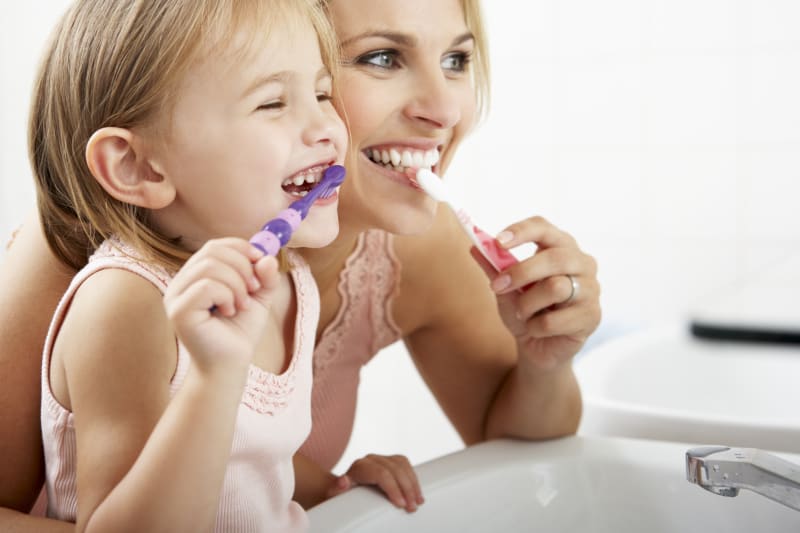Crooked teeth and misalignment in the jaw can create problems when chewing, impacting digestion.
With braces, these issues can be corrected; their benefits include improved smile, reduced dental emergencies and enhanced oral health. Braces may even correct speech impairments such as lisp.
Dental Hygiene
Dental hygiene is of utmost importance while wearing braces, and even more so while wearing them. Braces, wires and bands trap food particles that could cause decay. Furthermore, wearing them makes it harder to remove plaque — a biofilm of microorganisms and organic debris containing harmful bacteria — from teeth. Plaque digests sugars found on teeth into acids that erode enamel, irritate gums and cause bad breath.
Brushing regularly is the single most effective way to prevent tooth decay and gum disease, making it especially crucial for those wearing braces. We suggest brushing at least three times each day using a soft toothbrush with fluoride toothpaste; additionally we can provide interdental brushes and floss threaders so they can thoroughly clean around their fixed appliances.
Hydrated hydrogen peroxide-containing mouthwashes can also help kill bacteria while soothing your mouth after eating or drinking acidic foods, like popcorn, bubblegum and taffy that could stain braces or cause damage to them.
Prevention of Tooth Decay
Tooth decay is one of the most widespread health concerns that affect people of all ages, caused by bacteria that build up on teeth surfaces and, left unchecked, start dissolving dentin beneath it. Left untreated, cavities can quickly progress into more serious health concerns that may even threaten life itself.
Modern orthodontic appliances tend to be more effective than their predecessors; however, they still leave plenty of nooks and crannies where food particles and bacteria can collect – worsening gum disease or tooth decay issues, making treatment harder overall.
To prevent tooth decay with braces, patients should regularly clean their hardware and teeth with brushing and flossing, along with using mouthwash containing fluoride to strengthen teeth and remove food particles that brushing and flossing may have missed. They should also adhere to a healthy diet without sweets and beverages and visit their orthodontist regularly for cleanings that more thoroughly remove plaque and tartar build-up.
Easier Chewing
As hard, chewy foods like granola bars and beef jerky can damage or break your braces, it is best to consume soft foods such as eggs and smoothies that provide easy chewing as a source of protein.
Misaligning teeth are more likely to trap food debris and bacteria, which can contribute to gum disease (gingivitis or severe periodontitis). Wearing braces straightens teeth so they are easier to keep clean with floss and toothbrushing; thus lowering your risk for periodontitis in future years.
Braces may also make it easier for you to pronounce certain words and speak clearly, since misaligning teeth can restrict tongue movement, leading to whistling noises when speaking clearly. Conversely, having well-aligning smile makes speaking clear and pronouncing certain words correctly much simpler while at the same time reducing wear-and-tear damage on soft tissues in your mouth and jawbone.
Better Digestion
Teeth are integral in digestion, as they break food down into manageable chunks before it enters the stomach. Crooked, overcrowded or improperly spaced teeth make this job harder, leading to poor digestion which in turn causes stomach issues like bloating and gas. Braces align your teeth more effectively so they work more effectively at breaking down food into digestible portions.
Crevices between misaligning or crookedness teeth can easily become breeding grounds for bacteria, leading to plaque, tartar, cavities and disease over time. Straighter teeth make maintaining proper oral hygiene much simpler through regular brushing and flossing practices that decrease risk of dental diseases overall.
Aligning of teeth and jaw can have an enormous effect on how we speak; an overbite may cause an involuntary lisp for instance. Braces can correct misalignments between your jaws and teeth to improve speech.


